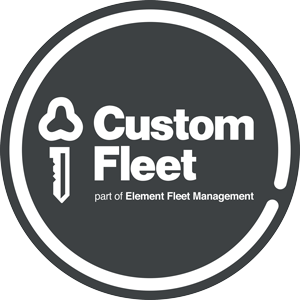Business leaders say EV policy needs to be smarter, not just stricter.
The current EU debate on a potential total ban on selling new cars with combustion engines after 2035 is one example of the discussions around the role governments should play in decarbonising transport, discussed in detail recently at the New Age of Mobility roundtable co-hosted by the New Zealand Herald and Custom Fleet.
According to roundtable participants government intervention is necessary but it’s so easy to get things wrong.
For example, in Australia the government has heavily incentivised the uptake of electric vehicles by making the cars and associated expenses post-2022 exempt of fringe benefits tax if they’re purchased on a novated lease or by a business for an employee.
While this has proved a boon for EV sales, they’re all starting to come back onto the market for resale at the same time. The problem is the technology has moved rather quickly as has the battery technology, so the resale value is very low which is not ideal for fleet managers.
As Custom Fleet President, Chris Tulloch, said at the roundtable “The resale market for fast-moving technology is always challenging”.
Taking this into account, most participants were relatively sanguine about government intervention.
Acting Director of the NZ Police Property and Fleet group, Inspector Brian Yanko pointed out governments stepping in with hard targets have brought us “some amazing innovation”.
Yanko says New Zealand has focused primarily on the solution to decarbonising transport being EVs, while governments are now starting to look more seriously at other innovations such as improvements in technology or other cleaner fuels.
New Zealand Police’s Acting National Fleet Manager, Leighton Hamlin, says there can’t just be one solution.
“Electrification is one area, and governments can assist with building out the charging infrastructure, but we still need to think about the fuel we still have,” Hamlin says.
“Our current fuel sources are still going to be around, but does it all need to be straight out of the ground, or can it be a blend of ethanol or something similar? That’s something governments can mandate and it’s part of the journey to decarbonisation as is better use of data and more productive vehicle use.”
Hamlin says that while targets can help drive progress, they work best when developed in partnership with industry to ensure they’re practical and achievable.
Fellow roundtable participant and Managing Director of OCS New Zealand and Australia, Gareth Marriott says business and government need to work together to drive common outcomes.
Decarbonisation won’t succeed through broad objectives alone. It needs government and business aligned on clear, shared priorities that we can deliver on together.
“Obviously, the government have a long list of objectives, and I appreciate all their challenges but are we absolutely working together on three or four things around this that we need to win on. I’m not convinced we’re all joined up,” Marriott says.
Auckland Council’s General Manager of Corporate Support Services, Anita Furniss says the decarbonisation journey is a long game and business’s relationship with government is important because “there are a lot of moving parts” as we try to solve for the future.
Moreover, she points out governments change, requiring organisations to agree on fixed milestones along the way. This avoids everything falling on the government of the day and reduces the risk of business reacting rather than being proactive.
Auckland Council’s Manager of Workplace Travel, Ross Sanford, says: “You can’t look into a crystal ball and wait until it’s perfect, organisations need to work with government right now because government decisions make a huge difference.”
“When the Luxon government removed the Clean Car Discount Scheme, the uptake of EVs just bottomed out so government support certainly helped in the uptake of EVs,” Sanford says.
Looking ahead, Sanford said now is a good time to introduce road user charges for all vehicles and lower the tax on petrol and diesel, at the same time adding a tax on petrol and diesel to build out the EV charging infrastructure as well as pay for greener energy and more public transport.
“Importantly, if you drive an EV and you’re using the road you should be paying for that use and the repairs on the road.
“There’s an opportunity there and business and government just need to work together to embrace that opportunity,” Sanford says.
To find out more click here.

